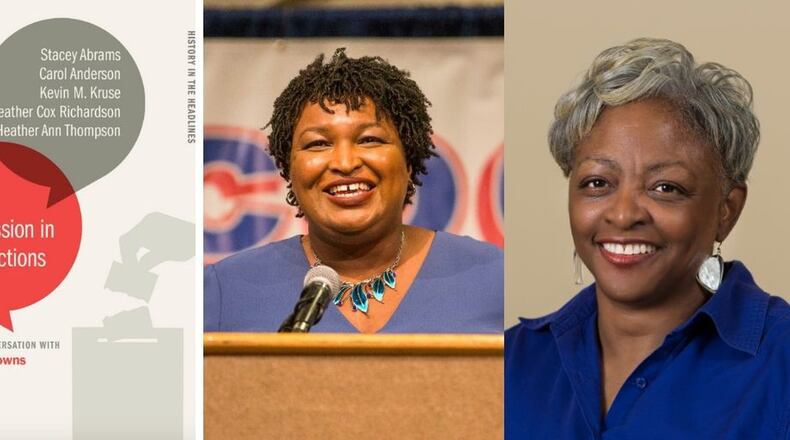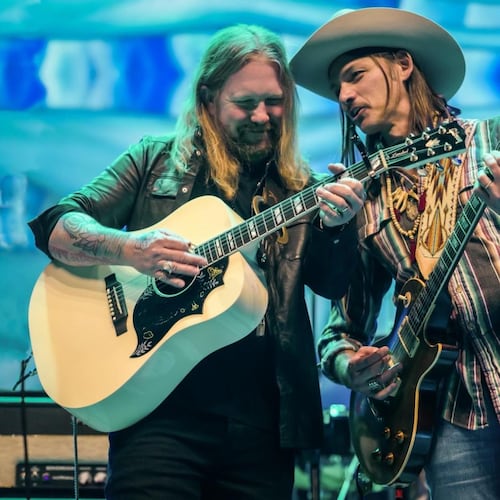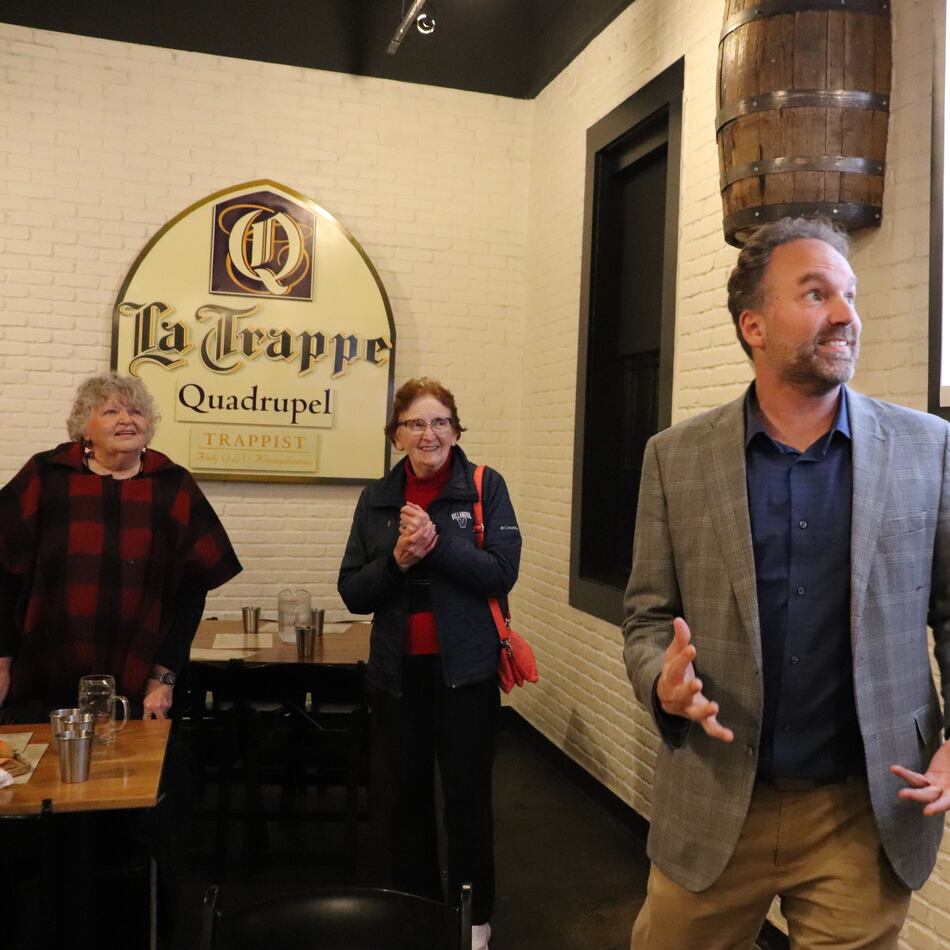The voting fiasco that plagued the Georgia primaries on June 9 has been blamed on technological snafus in the state's new $104 million polling system, failure to adequately train poll workers and the COVID-19 pandemic.
But as a new book from the University of Georgia Press points out, that is what makes voter suppression so insidious. Taken individually, impediments to the voting process may appear as an unintentional glitch in the system. But put them in historical context, and the specter of a 150-year-old effort to suppress the Constitutional rights of African-Americans looms large.
Published this week, "Voter Suppression in U.S. Elections" (UGA Press, $19.95) is a timely addition to the university's History in the Headlines series. The first half of the book is a transcript of a roundtable discussion featuring five expert panelists. Among them is 2018 Georgia gubernatorial candidate Stacey Abrams, who famously refused to officially concede the election to then-Secretary of State Brian Kemp due to suspicious management of the voter rolls, including the purging of more than a half-million registered voters.
The surreptitious nature of modern-day voter suppression is a key topic in the discussion. For example, after the 15th amendment was ratified in 1870 giving African-American men the right to vote, the poll tax was commonly used to discourage black voters from exercising their right. The poll tax disappeared after the Voting Rights Act was enacted in 1965, but there is a modern-day equivalent, says Abrams. Long waits at polling places amount to loss of wages — a tax of sorts. Not everyone can afford to stand in line for five hours or more, as many did last week for the Georgia primary.
Carol Anderson, professor of African-American studies at Emory University and author of "White Rage" and "One Person, No Vote," is also a panelist. She points to the voter ID law passed in Alabama after the Supreme Court took the teeth out of the Voting Rights Act in 2013. She faults the law not for demanding government-issued photo IDs to vote, but for its list of acceptable options, which includes driver's licenses, student IDs and military IDs, but no public housing IDs.
“In Alabama … 71 percent of those in public housing are African American, and as the Legal Defense Fund noted, for many, that’s the only ID they have. They don’t have cars; cars are expensive, and if you are poor, you can’t afford a car,” she says. “So when you cancel … the one government-issued photo ID that people have, then you are blocking their access to the ballot box…”
The rest of the book is composed of previously published essays, including entries by Anderson, Abrams and U.S. Rep. John Lewis, plus Abrams’ 2019 statement to the House Judiciary Subcommittee on the Constitution, Civil Rights and Civil Liberties on the challenges created by changes to the Voting Rights Act.
After reading this enlightening and despairing examination of an issue vital to the elections in November, you may never see a polling place glitch the same way again.
GAYA winners announced
Winners of the 56th annual Georgia Author of the Year Awards were announced June 13. Presented by the Georgia Writers Association, the awards recognize the following winners and finalists in 14 categories:
Biography. Winner: John D. Duncan & Sandra L. Underwood, "The Showy Town of Savannah: The Story of the Architect William Jay"; Finalist: David Cady, "Religion of Fear: The True Story of the Church of God of the Union Assembly"
Children's book. Winner: Tanya Valentine, Illustrated by Jorge Martin, "Little Taco Truck"; Finalist: Denene Millner, Illustrated by Gladys Jose, "Fresh Princess"
Cookbook. Winner: Whitney Otawka, "The Saltwater Table: Recipes from The Coastal South"; Finalist: Chris Taylor and Paul Arguin, "The New Pie: Modern Techniques for the Classic American Dessert"
Detective/Mystery. Winner: Brian Panowich, "Like Lions"; Finalist: Joshilyn Jackson, "Never Have I Ever"
Essay Collection. Winner: Megan Volpert, "Boss Broad"; Finalist: LaRue Cook, "Man in the (Rearview) Mirror: That Time I Left Corporate America, Became An Uber Driver, and Lived to Write About It"
First Novel. Winner: Anissa Gray, "The Care and Feeding of Ravenously Hungry Girls"; Finalist: Jessica Handler, "The Magnetic Girl"
History. Winner: G. Wayne Clough, "Things New & Strange: A Southerner's Journey Through the Smithsonian Collections"; Finalist: Akila Sankar McConnell, "A Culinary History of Atlanta"
Inspiration. Barbara Brown Taylor, "Holy Envy: Finding God in the Faith of Others"; Finalist: Carl McColman, "Unteachable Lessons: Why Wisdom Can't Be Taught (And Why That's Okay)"
Literary fiction. Winner: Zoe Fishman, "Invisible as Air"; Finalist: Susan Rebecca White, "We Are All Good People Here"
Memoir. Winner: Heather Christle, "The Crying Book"; Finalist: Jared Yates Sexton, "The Man They Wanted Me to Be: Toxic Masculinity and a Crisis of Our Own Making"
Poetry Chapbook. Winner: Clela Reed, "Silk"; Finalist: Diana Anhalt, "Walking Backward"
Poetry full-length book. Winner: Malcolm Tariq, "Heed the Hollow"; Finalist: Edward Wilson, "In a Rich Country"
Romance. Winner: Tracy Solheim, "Shot in the Dark"; Finalist: Wendy Wax, "My Ex-Best Friend's Wedding"
Young adult. Winner: Nic Stone, "Jackpot"; Finalist: Laura Silverman, "You Asked for Perfect"
Suzanne Van Atten is a book critic and contributing editor to the AJC. svanatten@ajc.com
About the Author
The Latest
Featured



